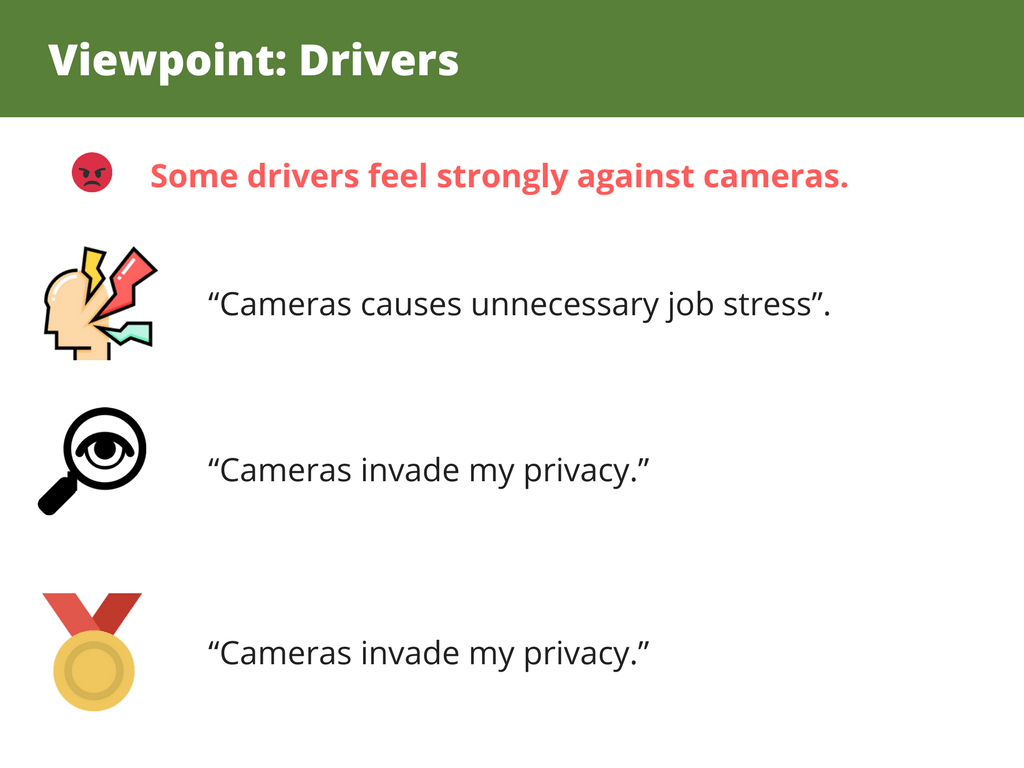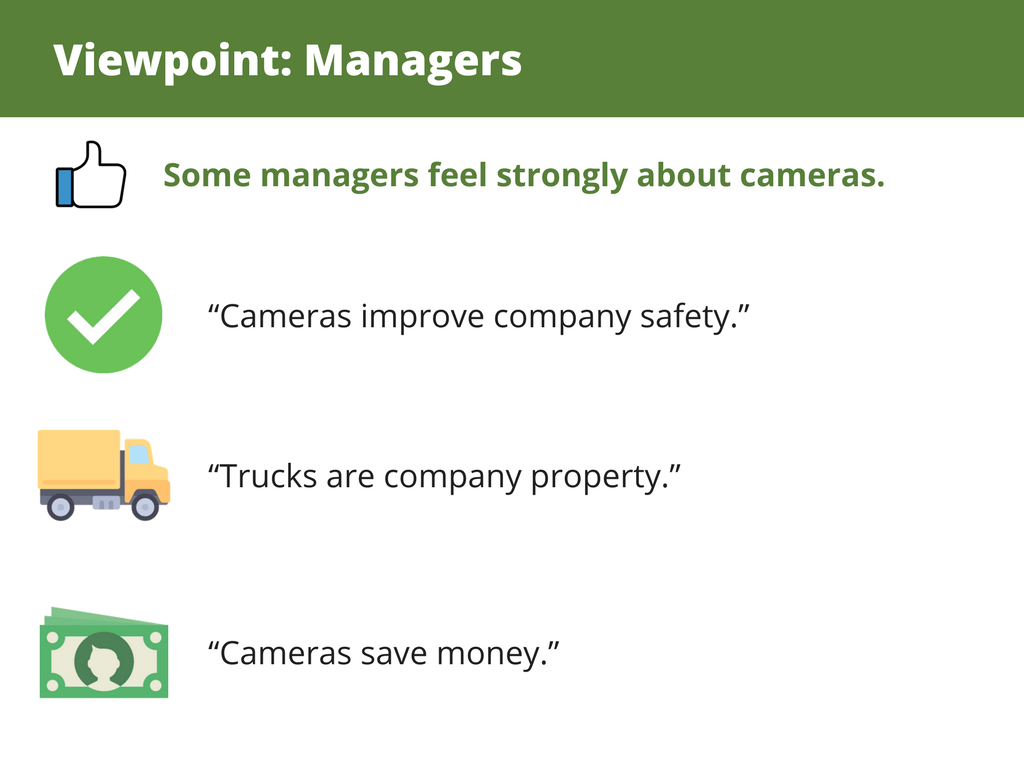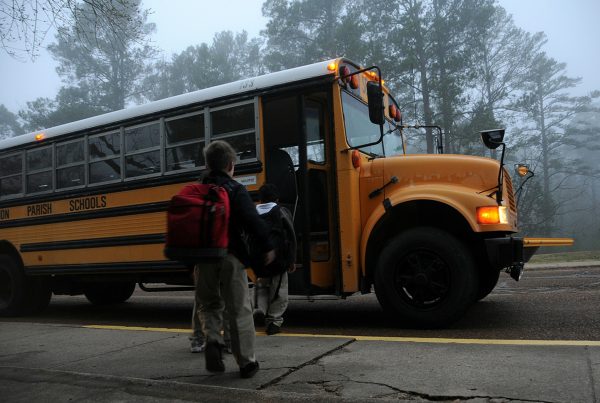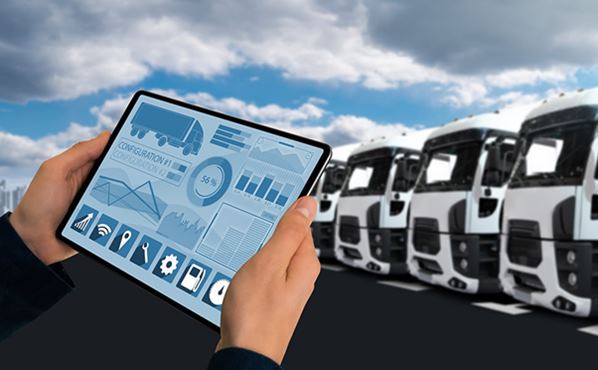
“Heck, no … I’ll quit the moment they install cameras!” “Cameras are great … they are going to improve our safety policies and save money!” Those quotes have two opposing feedbacks about commercial truck camera systems. Why is there a big debate?
Commercial Truck Camera Systems
Commercial truck camera systems are not a new idea. Just last year, many camera vendors reported sales growth of over 50%. Commercial truck camera systems are certainly here to stay!
At the same time, drivers and managers often have differing views. Some drivers view it as a program that invades their privacy. On the other side, some managers view it as a safety enhancer.
Let’s take a look at both views.
Drivers

A lot of drivers feel strongly against cameras.
“Cameras causes unnecessary job stress”.
A lot of drivers complain that cameras make their jobs more stressful. “These days, truck driving is already nerve wrecking,” said a driver. “I don’t need more stress from something watching me”. According to drivers, cameras make driving uncomfortable and worsens their driving.
“Cameras invade my privacy.”
Another common complaint is privacy. “My truck is like my home,” said a driver. “Why do I need someone watching me?”
A lot of drivers sleep, change, or make personal calls in their trucks. They compared cameras to having a spycam in their bedroom. “What’s next, they will put cameras in bathrooms?”. joked a driver.
“I’m already a great driver.”
“I’ve been driving for decades,” said a veteran driver. “I never got in an accident and have a clean record.”
Some drivers conclude that there’s no need for cameras because they know how to drive. They feel like this gadget is more appropriate for younger drivers.
Managers

Some managers, on the other hand, feel strongly about the benefits of cameras.
“Cameras improve company safety.”
A lot of managers counter that their job is to promote safety. “Our business’s reputation is built on safety,” said a manager. “We’re responsible for training drivers and keeping them out of accidents. Cameras do both.”
Safety managers use camera footage to identify how to train drivers. As a result, many camera adopters saw improvement in their accident rate and ticket rate.
“Trucks are company property.”
Some managers insist that cameras are fine because they are protecting company property. “Trucks belong to the company and drivers are paid to operate it,” said a manager. “It’s no different than having a supervisor in a warehouse.”
“Cameras save money.”
Cameras often pay for themselves. “There was a traffic accident and someone claimed hundreds of thousands of dollars against our business,” said a trucking company owner. “We sent our camera footage, which showed that we were clearly not at fault. Needless to say, the case was thrown out without even going to court.”
Other than saving legal costs, cameras increase savings in other areas. For instance, truck camera recording systems simplify insurance claims. Camera footages skips the tedious process of interviewing witnesses and companies often report saving over 80% of claim time.
Need for a Middle Ground
Clearly, both groups have strong and valid views. In that case, the best solution is to find a middle ground. Easier said than done! Here are two tips to find that balance.
Managing Privacy Concerns
Privacy concerns cause a huge conflict. On one side, drivers are protective of their privacy. On the other side, managers are protective of their safety performance. A good compromise is finding non-intrusive camera systems.
Dashcams. Some commercial truck camera systems only include dashcams, which are outward facing cameras. A lot of drivers are fine with dashcams because their cabin room is never recorded.
Non-intrusive dual-channel cameras. Even if dual-channel models are used, some are non-intrusive. For example, ZenduCams are designed to shut off when the truck is powered off. This lets drivers continue doing anything they would do at home when their shift is done.
Communication
“Big Brother” is another conflict. Drivers are stressed that they are constantly watched, while managers are interested in correcting bad driving habits.
The best practice, therefore, to get both parties on the same page is to:
- Firstly, involve drivers in creating safety rules. Both parties should have a say on what are reasonable rules and what should be reviewed.
- Secondly, restrict managers from constantly watching drivers. Managers should only review critical events as agreed by both the drivers and the managers.


